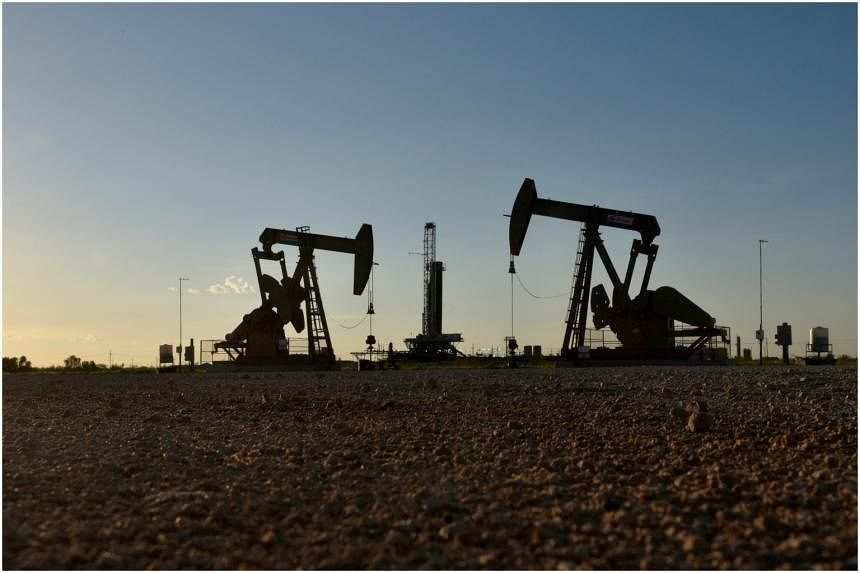MELBOURNE (REUTERS) - Oil prices clawed back some losses on Thursday (April 7) after tumbling more than 5 per cent to a three-week low in the previous session after consuming nations announced a huge release of oil from emergency reserves to offset supply lost from Russia.
Brent crude futures climbed US$1.32, or 1.3 per cent, to US$102.39 a barrel at 9.19am Singapore time, while US West Texas Intermediate crude futures rose US$1.18, or 1.2 per cent, to US$97.41 a barrel.
International Energy Agency (IEA) member countries agreed to release 60 million barrels of oil on top of a 180 million-barrel release announced by the United States last week to help drive down prices in a tight market following Russia’s invasion of Ukraine.
Analysts said that even with the emergency oil stocks release, supply remained tight.
“In addition to the enormous global reserves release, demand destruction and recession are currently the only price-lowering mechanism in a world devoid of inventory buffers,” said Mr Stephen Innes, managing director of SPI Asset Management.
National Australia Bank analyst Baden Moore said the latest release plus the IEA’s coordinated release announced on March 1 equates to one million barrels per day in extra supply from May to the end of 2022, which would cap prices in the near term.
“The additional supply reduces the near-term upside risk to the market and likely avoids the need for refinery cuts in the near term,” Mr Moore said in a note.
However, he added a word of caution: “But the need to restock reserves, expected in 2023, adds to the forward market tightness where the fundamental supply outlook remains unchanged, tilting the price risk to the upside.”
Stalled indirect talks between Iran and the US on reviving a 2015 agreement on Teheran’s nuclear programme have further delayed the potential for sanctions on Iranian oil to be lifted, keeping the market tight.
Political decisions are needed in Teheran and Washington to overcome remaining issues, negotiators say.
Crude markets have been through weeks of volatility, with prices surging on supply concerns after Russia’s invasion of Ukraine and subsequent sanctions on Moscow by the US and its allies.
Lately, the market has been pulling back following reserve releases along with worries of slowing demand in China, where a resurgent pandemic has prompted lockdowns of cities including Shanghai. Chinese refiners of late are avoiding new contracts with Russia, suggesting that Beijing is being cautious not to overtly support Moscow at this time.

